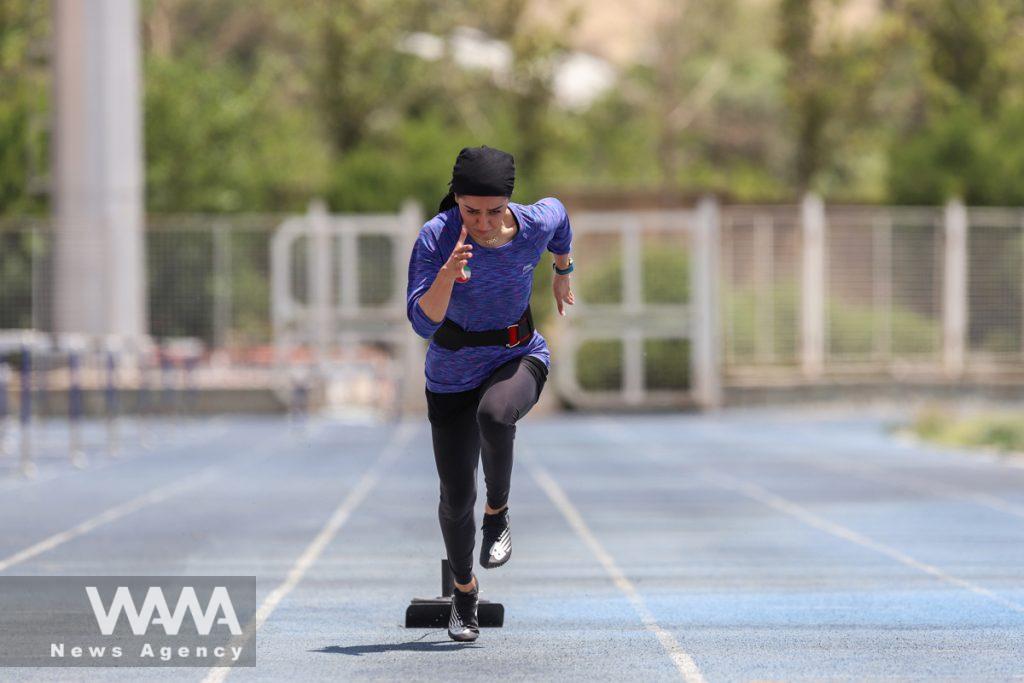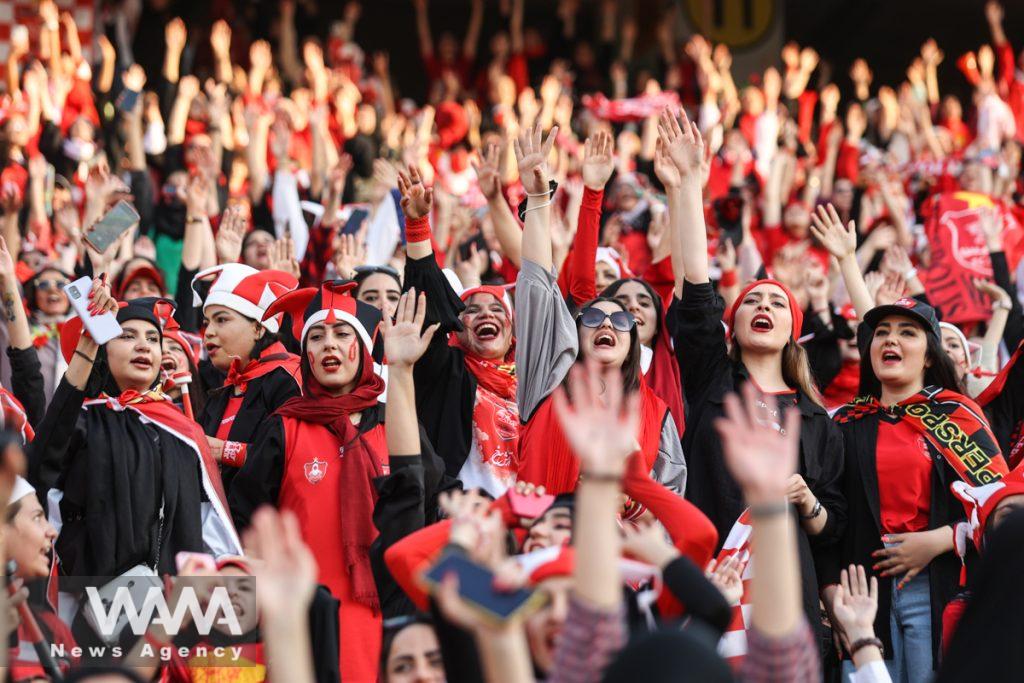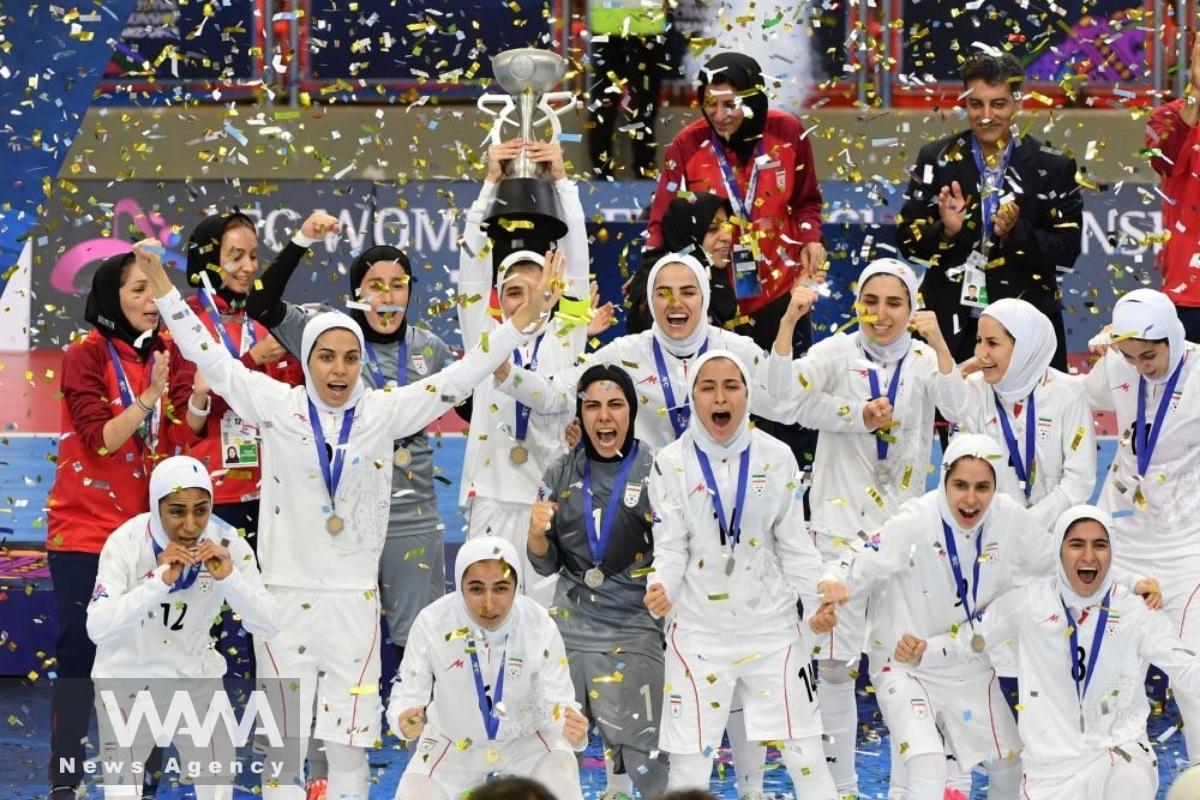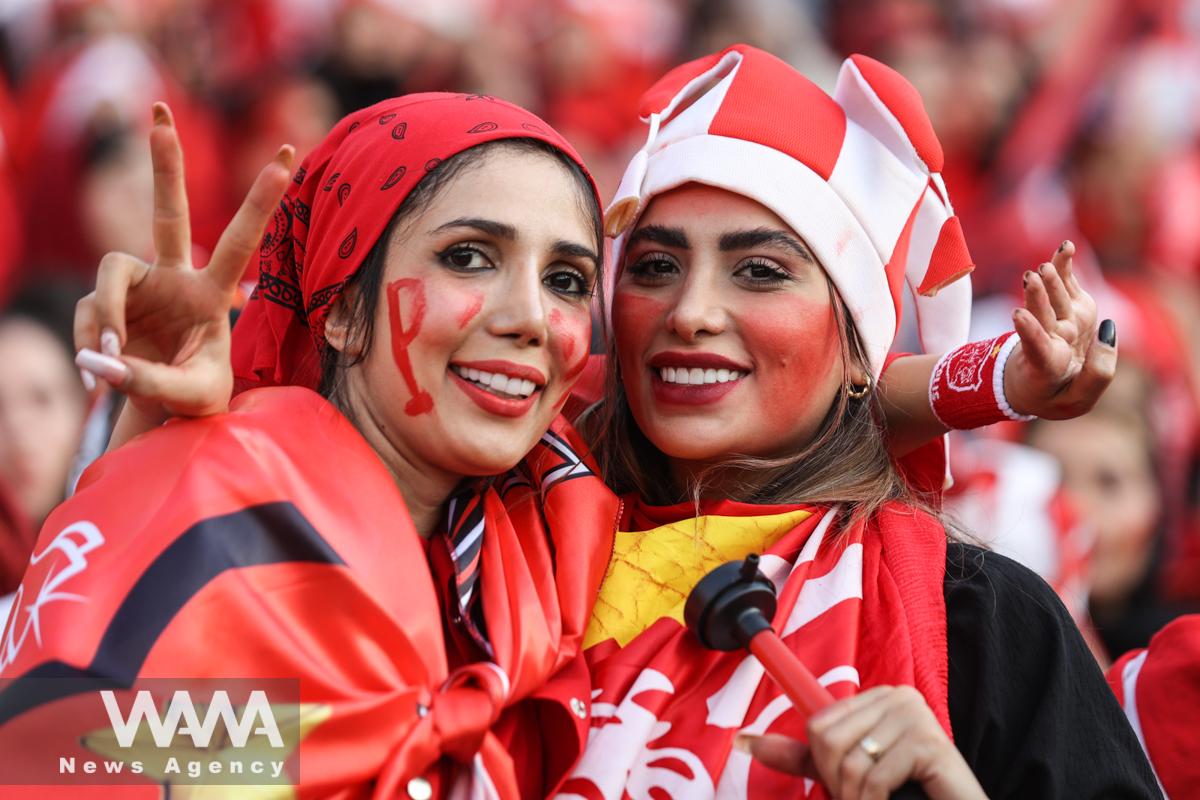Iranian Female Athletes Barriers
WANA (July 22) – More than four decades after a major revolution in Iran, women’s sports remain a significant concern for the country’s female population and international observers. With a population exceeding 85 million, nearly half of Iran’s citizens are women.
Following the revolution and during the eight-year Iran-Iraq war, as well as the subsequent reconstruction period, national priorities were directed towards critical issues, leaving little room for serious attention to women’s sports by Tehran’s leaders.
Women’s sports in Iran have seen some development and improvements in the past decade. However, numerous obstacles still hinder Iranian women’s aspirations in this field.
“We have neither live TV broadcasts nor internet coverage. When media does not support us or attend our competitions, no sponsor steps forward to support the athlete,” lamented Farzaneh Fasihi, an Iranian sprinter who qualified for the Tokyo Olympics. Inappropriate treatment in international competitions due to wearing Islamic attire is another grievance voiced by Iranian female athletes.

Farzaneh Fasihi, an Iranian sprinter at the Tokyo Olympics, is training at a stadium in Tehran, Iran, July 2, 2021. Majid Asgaripour/WANA (West Asia News Agency)
The other concern of Iranian female athletes was the requirement that they obtain their husbands’ permission to participate in international competitions. This issue came to light prominently when Niloufar Ardalan, the captain of Iran’s women’s futsal team, was barred from leaving the country by her husband on the eve of the Asian Championships.
The captain’s travel ban and the ensuing reactions challenged this law for the first time, marking the first instance of a spouse preventing a national team member from participating in international events. At the time, Ardalan wrote on Instagram, “I will pursue this issue through the Women’s Rights Association. I am not travelling abroad for leisure; my goal is to elevate the flag and country.”
Fortunately, new regulations in Iran have rendered such spousal prohibitions largely ineffective and illegal. According to the updated laws, female national team members can now leave the country to participate in competitions, scientific conferences, sports events, or any activities representing Iran without needing their husband’s permission.
Since last year, there have been some improvements regarding women’s attendance at sports stadiums, but it has not yet become widespread. The presence of Iranian women in various stadiums is still not fully established as a normal and easy practice.
FIFA and other international sports bodies have pressured the Iranian government on this issue, and the Iranian government has made certain commitments to these international organizations.
Misconceptions, gender discrimination, neglect, inadequate infrastructure, and traditional attitudes are among the obstacles hindering the development of women’s sports in Iran. To address these issues, social beliefs need to change, and a more equitable environment, similar to that provided for men, should be created for women.
Due to these restrictions and the lack of adequate facilities, only 20% of Iranian women engage in sports despite their significant social influence.
Despite facing numerous challenges, Iranian female athletes have demonstrated their high potential and capabilities. Iranian women, alongside men, strive to position the country’s women’s sports as serious contenders in Asia and on the global stage. However, these efforts to win medals come with additional challenges and more restrictions compared to men’s sports, which often go unnoticed.

Iranian women’s soccer fans attended a match between Perspolis and Sanat Naft-e Abadan teams in Iran’s Premier League at Azadi Stadium in Tehran, Iran, on August 31, 2022. Majid Asgaripour/WANA (West Asia News Agency)
What Does Iran’s Constitution Say About Women’s Sports?
Article 20 of the Iranian Constitution emphasizes equality between men and women in all matters, including social issues, which logically extend to sports. Thus, it can be said that the choice and participation in sports activities, as long as they comply with Islamic principles, is a fundamental right for all women, just as it is for men. Decision-making regarding their sports involvement is left to the women themselves.
Furthermore, Article 21 specifically addresses women’s rights, mandating the government to ensure conducive conditions for the development of women’s personalities, in accordance with Islamic norms. Therefore, the principles of the Constitution suggest there are no restrictions (within Islamic guidelines) on women’s sports activities and no gender segregation in all fields, including sports.
However, despite these constitutional guarantees, the question remains as to why there are more obstacles for women in sports compared to men in Iran.
In the early years following the Islamic Revolution, Iranian female athletes were primarily restricted to participating in sports such as shooting or chess in international competitions. However, after three decades, the situation has significantly changed.
Today, apart from a few exceptions, Iranian women have participated at least once in international events across most sports disciplines. The development of specialized sportswear that maintains Islamic coverage while serving as functional athletic apparel, which once seemed improbable, has now become a reality and has facilitated greater participation of Iranian women athletes.
Despite this progress, Iranian women athletes still face a long road to achieving prominence in the global sports arena. Current statistics indicate that they are at the beginning stages of their international journey. Challenges persist, including ongoing resistance to sending female athletes to international competitions.
Iranian women are not yet widely recognized in team sports. Although they now have experience in at least one international match across five major team sports, the journey is still in its early stages. The numerous invitations for Iranian women’s teams to international events often stem from the novelty and appeal of their unique attire. Iranian women involved in team sports initially gained international experience through football and futsal.

WANA – futsal team after the victory over Japan and the Asian championship
In recent years, Iranian female athletes have achieved numerous milestones, including:
- The Iranian U-16 girls’ basketball team secured the runner-up position at the Asia Cup, marking the first time an Iranian team reached this level in history.
- The Iranian youth women’s handball team earned a silver medal at the 2023 Asian Championship held in Kazakhstan, securing a spot in the global competition.
- The Iranian women’s ice hockey team won the silver medal at the Asian Championships for adults.
- In weightlifting, Elham Hosseini claimed three gold medals at the 2022 Asian Championship and was recognized by the International Weightlifting Federation as the best Iranian female weightlifter.
- Nahid Kiani won the gold medal in taekwondo at the 2023 World Championship in Baku.
These accomplishments highlight the growing success and recognition of Iranian women in international sports.
In addition to their recent achievements, Iranian female athletes are making significant strides toward the Paris 2024 Olympics. Out of 40 Iranian athletes set to compete in this edition of the Games, 11 are women, representing various sports, including rowing, shooting, taekwondo, table tennis, archery, and athletics.













